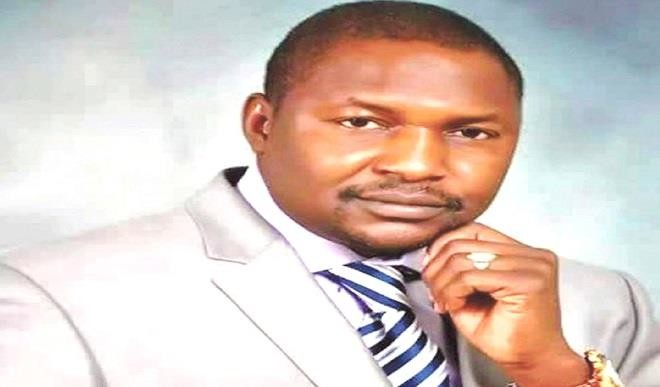NBA, EFCC’s row over prosecutorial powers
The debate on the prosecutorial powers of the Economic and Financial Crimes Commission (EFCC) resurfaced on a day the president of the Nigerian Bar Association (NBA) Abubakar Mahmud (SAN) was inaugurated. During his inauguration in Port Harcourt, Rivers State, on August 26, Mahmoud had called for reforms in the operations of the EFCC. He suggested […]

FILE PHOTO: Abubakar Malami.

The debate on the prosecutorial powers of the Economic and Financial Crimes Commission (EFCC) resurfaced on a day the president of the Nigerian Bar Association (NBA) Abubakar Mahmud (SAN) was inaugurated.
During his inauguration in Port Harcourt, Rivers State, on August 26, Mahmoud had called for reforms in the operations of the EFCC. He suggested that the anti-graft commission be made to only investigate while an independent agency conducts prosecution.
“We need to define its mandate more narrowly and more clearly. I strongly recommend that the EFCC be limited to investigation…while prosecution should be handled by an independent resource prosecution agency,” he said.
The acting EFCC Chairman, Ibrahim Magu, through the commission’s spokesman Wilson Uwujaren responded by describing the NBA president’s comments as self-serving and meant to protect a cabal of untouchables. He added that the call is a disguised attempt by powerful interests to undermine the anti-corruption efforts.
“The commission views with concern the call by the NBA President that the EFCC be stripped of its prosecutorial powers,” Uwujaren said. “The Commission’s discomfort over this seemingly innocuous proposition stems from the fact that Mahmoud was silent on the reason for his position.”
Under Section 6 (m) of the EFCC Establishment Act, 2004, the powers of the commission includes: “taking charge of, supervising, controlling, coordinating all the responsibilities, functions and activities relating to the current investigation and prosecution of all offences connected with or relating to economic and financial crimes.”
In defence of this provision, anti-corruption lawyer Rotimi Jacobs (SAN) says the comment by the NBA President borders on ‘corruption fighting back’ because of the modest achievement of the EFCC.
He explained that out of about 20 agencies authorized by the Constitution to investigate and prosecute, only the EFCC is more prominent having secured over 1000 convictions since inception in 2004 which involves former governors, public servants and businessmen.
“If somebody is doing well is that the reason you try to deprive him of his powers? It is neither here nor there,” he said. “If the intention is to make EFCC more effective and efficient, I think the NBA President should rather address those things that are hindrance to their performance. Things like paucity of funds, lack of independence of the EFCC because none of the chairman has completed their tenure.”
“NBA should rather be concerned that up till now we don’t have Proceeds of Crimes Act where before conviction you can take over stolen assets. All over the world, there is a convention on Civil Forfeiture Procedure but our National Assembly have refused to pass the law. Those are the things that inhibit the fight against corruption,” he added.
But the immediate past chairman of the Council of Legal Studies (CLE) who is also a former President of the NBA, Chief O.C.J. Okocha (SAN) believes the call by Mahmoud was the right one. In agreeing with Mahmoud, he said it is good to recognise that in the principles of criminal justice it is always good to have entities distinct and different.
"In Nigeria, because of the way our legal history came up, policemen are also prosecutors in courts; but the principle that the bar is trying to pursue now is that with thousands of lawyers looking for jobs, these legal practitioners should be employed to act as prosecutors at all levels of prosecution," he said.
Also, the executive director Citizens Advocacy for Social and Economic Rights (CASER), Barr Frank Tietie, believes that beyond the separation of the investigative and prosecutorial powers of the EFCC, there is urgent need to amend the EFCC Act to enthrone rule of law, fairness and neutrality.
“Over the years, the EFCC relies a lot on the police to man its operations so the very lapses we see in the police have also been transferred to the EFCC. To now leave the suggestion of the NBA President and start maligning the person of the president further shows the ineptitude under which the EFCC has been administered in the foregoing years,” he said.
For his part, Ilorin-based lawyer, Abeny Mohammed (SAN), believes that the propositions to strip EFCC of its prosecutorial powers are the best to give room for neutrality and dichotomy and strengthen its investigation. He however identifies what he called the ‘Nigerian factor’ as capable of undermining causing undue rivalry.
As the debate rages, the presidency has said there is no controversy on whether or not to strip the EFCC of its prosecutorial powers.
Special Assistant to the President on Anti-Corruption in the office of the AGF and Minister for Justice, Okoi Ofem Obono-Obla, that the chief prosecutor of the federation is the AGF who derives his powers from Section 174 of the 1999 Constitution.
According to him, Section 12 of the EFCC Act is subject to the powers of the AGF and so there is no controversy.
He added that the EFCC Act is inferior to the constitution, saying that even if the EFCC has powers to prosecute, such power does not override the powers of the AGF.
